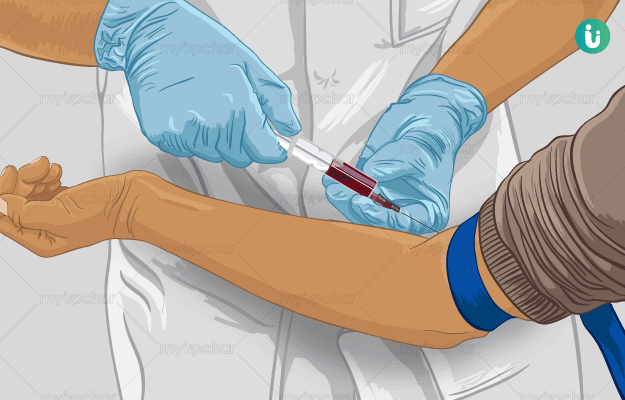What is Lactate Dehydrogenase (LDH) test?
Lactate dehydrogenase or lactic acid dehydrogenase (LDH) is an enzyme or protein present in body. The main function of LDH is to produce energy in cells from glucose or sugar. LDH is present in various organs or tissues, including heart, muscles, liver, red blood cells (RBCs), lungs, kidneys, brain, pancreas and spleen. There are five types of this enzyme as mentioned below:
- LDH1: Heart muscles and RBCs
- LDH2: White blood cells (WBCs)
- LDH3: Lungs
- LDH4: Kidney, placenta and pancreas
- LDH5: Liver and skeletal muscles
LDH is released in the blood when there is damage to cells or tissues in an organ. Hence, LDH test can identify tissue or cell damage in the body. However, it is a nonspecific test and is usually combined with other laboratory investigations to confirm the diagnosis. Measurement of different types of LDH enzymes mentioned above may identify the location of tissue damage, for eg raised LDH1 levels may indicate damage to heart cells, and an increase in LDH5 levels suggests liver diseases.






























